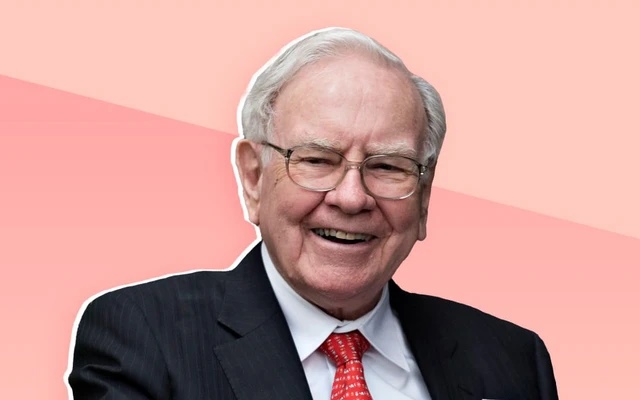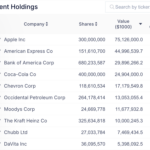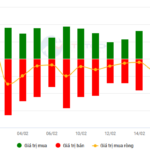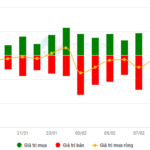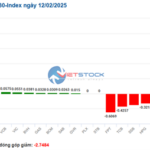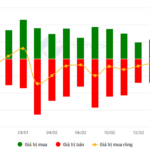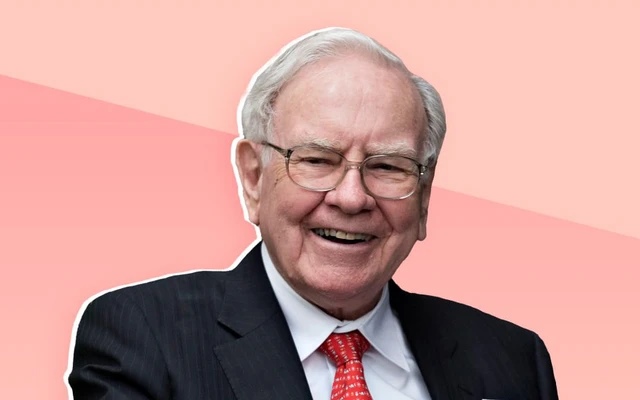
Warren Buffett
|
In the letter, the “Oracle of Omaha” revealed a notable figure: Berkshire contributed $26.8 billion in taxes last year, accounting for approximately 5% of the total taxes paid by all US corporations. He used this opportunity to send a message to the government about the efficient use of tax revenue and maintaining a stable currency.
“So, thank you, Uncle Sam. Someday, your nieces and nephews at Berkshire hope to send you even larger checks. Spend them wisely. Take good care of the many who, through no fault of their own, are dealt a bad hand in life. They deserve our help, not our rejection. And never forget that we need you to maintain a stable dollar, an assignment that calls for both wisdom and vigilance on your part,” Buffett wrote.
The 94-year-old billionaire expressed concern about the country’s worsening fiscal situation. The budget deficit exceeded $1.8 trillion in fiscal 2024, while interest expenses surpassed $1 trillion for the first time due to higher long-term yields.
“Paper money has value only because of the acceptance—sometimes grudging—that it enjoys. In some countries, this acceptance has been withdrawn, and the result has been a wheelbarrow of currency being needed to buy a loaf of bread. In our own country, we have moved in the same direction, but only to a small degree. Fixed-dollar obligations, no matter how long their maturity, are no protection against currency debasement,” he warned.
Despite Berkshire’s net sale of stocks for nine consecutive quarters and a record cash pile of $334 billion, Buffett affirmed that stocks remain their preferred investment.
“Despite some commentators’ current concern about the stock market, I want you to reassure the many shareholders of Berkshire who are newcomers that their investment in stocks—an investment that is often thought risky—will over time be far less risky than short-term debt instruments, which are conventionally thought safe,” he emphasized.
Notably, in this year’s letter, Buffett had high praise for his successor, Greg Abel. “Greg has proved himself in his current job, and Berkshire directors agree that he is the right person to succeed me as CEO—and he will, in fact, succeed me,” he shared.
Looking back on his 60-year journey at Berkshire, the legendary investor pointed out the pivotal decisions that shaped the corporation today, including the acquisition of Geico and the appointment of Ajit Jain.
“I’ve also had some enjoyable surprises about both the potential of certain businesses and the capabilities and loyalty of certain managers. Our experience has taught us that one good decision can produce amazing results over time. (Think of GEICO as a business decision, Ajit Jain as a managerial decision, and my finding Charlie Munger as a combination of the two, plus a lifetime of friendship.) Mistakes, on the other hand, will be impersonal and soon forgotten,” he reflected.
Finally, Buffett revealed plans to expand investments in Japan, where Berkshire has reached agreements to exceed the 10% ownership limit in five trading companies.
“Our investments in all five of these companies are intended to be permanent, and we plan to be supportive shareholders of their managements and board directors. From the outset, we agreed to hold our purchases to a maximum of 9.9% of each company’s outstanding shares. But, as we approached that limit, each company amended its charter to welcome investments by Berkshire of up to 25%. Over time, you may see Berkshire’s ownership in all five of these companies increase,” he concluded.
– 06:47 23/02/2025
Where Are Warren Buffett, Ray Dalio, Michael Burry, and Bill Ackman Placing Their Bets?
In the midst of a volatile stock market, five renowned investors – Warren Buffett, David Tepper, Ray Dalio, Michael Burry, and Bill Ackman – have revealed their distinct investment strategies in their latest 13-F filings.
The Market Tug-of-War: Will History Repeat Itself at the Peak?
The VN-Index edged higher, forming a Doji candlestick pattern. This indicates a persistent tug-of-war as the index retests the old peak from October 2024 (1,290-1,305 points). For the uptrend to sustain, the index must breach this zone. Meanwhile, the Stochastic Oscillator ventures deeper into overbought territory. Investors should exercise caution if the indicator flashes another sell signal in the coming days.
The Market Tug-of-War: Will the Stalemate Finally End?
The VN-Index rose while maintaining a tug-of-war stance following recent alternating sessions of gains and losses. Moreover, with trading volume remaining below the 20-day average, it indicates that investor caution is still prevalent. The Stochastic Oscillator indicator is also signaling a sell-off within the overbought territory, with a potential exit from this zone in the coming period. Should this occur, the risk of short-term corrections persists.
Market Beat: A Tale of Contrasting Headlines and Cautious Sentiment
The market closed with the VN-Index down 1.54 points (-0.12%) to 1,266.91, while the HNX-Index climbed 0.45 points (+0.2%) to 229.32. The market breadth tilted towards gainers with 349 advancing stocks against 375 declining ones. The large-cap basket, VN30-Index, witnessed a similar performance with 14 losers, 11 gainers, and 5 stocks closing flat, indicating a relatively balanced session.
Market Mayhem: Navigating the Storm
The VN-Index’s ascent narrowed amid sustained above-average trading volumes. This indicates persistent selling pressure as the index retests the old peak from December 2024 (around 1,270-1,285 points). Unless this dynamic changes in upcoming sessions, breaking out of this range seems unlikely. Notably, the Stochastic Oscillator is venturing deeper into overbought territory. Should a sell signal emerge and push the index out of this region, the risk of a downward correction heightens.

